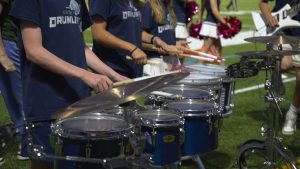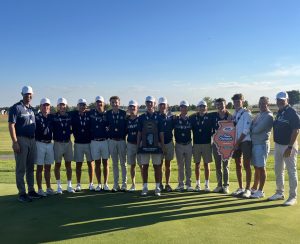Recruits take next step in athletic careers
58 seniors will play collegiate level sports
May 16, 2016
Among the 1000 students approaching graduation, a select few plan to take their athleticism to the next level and play their respective high school sport in college.
According to athletic director, Randy Oberembt, around 65 athletes go on to play at the collegiate level each year.
Although potential recruits can use sports to “bump up” their application and increase their chances of getting into their reach school, the main reason that these students choose to stick with their sport through college is because of the love they carry for it.
Senior rower Bella Miller said, “Right now, I can’t imagine my life without rowing. I’ve always known that senior year can’t mark the end of my rowing career, and I love it too much to let it go. Collegiate rowing is also so exciting because I’ve come so far already, and I know that it will push me to new levels.”
Senior lacrosse player Tyler Seminetta said, “It’s just a huge part of my life and I wasn’t ready for it to end.”
Due to intense college regulations, the college recruitment process can be hard and complicated. The NCAA has regulations determining the length and frequency of contact between coaches and the athletes.
The process, although it carries the same end result, varies in execution. Some students begin by emailing the coach of a college in which they are interested, or make accounts on recruiting websites like Hudl or Be Recruited. Sports, like soccer and baseball, have “showcase tournaments” that are held by local colleges.
Junior soccer player, Natalie Laser, committed to USC her sophomore year. She said that she was first recruited after going to the Surf Cup showcase in San Diego with her varsity team.
Coaches from all over attend to find potential stars for their team. The USC coaches asked her to stay in California for another week to attend another camp and soon after invited her on a unofficial visit. Three weeks later she was going to be a USC Trojan.
Showcases allow the athletes to be seen and recruited by college coaches; although seeming old-fashioned, they are often the best outlet to get recruited. Showcases happen during the summer, and when each school has a camp or a showcase it can be hard to decide which one to go to.
Junior football player Max Rosenthal has been attending showcases and expressed the importance and how difficult it is to decide which to go to: “The coaches work with you in person and so I have to narrow it down to five that I am really interested in and attend their camps.”
However, social media and apps are becoming increasingly popular recruitment devices.
“Social media is a big part of recruiting. Twitter is probably the biggest app for communication because coaches aren’t allowed to text you, so they will DM (direct message) you,” Rosenthal said.
Rosenthal regularly retweets and tweets at colleges to show interest. He also expressed that you have to be careful, because there are people from colleges that’s job is to follow your social media.
Social media is also a parent-approved way to reach out to a school. NT athletic director Randy Oberembt said he talked to a parent who made her son get social media accounts just to reach out to schools.
The most popular way to reach out to a school and start the recruitment process is to email coaches at schools of interest.
Isabelle Tashima, who will play volleyball at Harvard next year, said, “I started by sending out emails to around 25 schools, introducing myself and sending out my schedule.”
Junior rower Eden Rane also did that: “I sent emails to over twenty schools to cast a wide net and to see which schools and coaches would be potentially interested in me.”
The long recruiting process, although rewarding, can seem a frightening for those who don’t have experience with it.
Sophomore rower Duncan Healey said, “I’m considering rowing in college, but since I’m the first rower in my family, I have no idea where to even begin.”
Seniors, who can empathize with the difficulty of the process, were more than willing to help out younger athletes and share their advice.
Senior soccer player Bina Saipi said, “Self-advocating is key. Go after what you want and go your hardest every minute you’re on the field.”
Miller said, “Buckle down and train like crazy so that by your junior year, you’re ready to kill it and impress coaches.”
Senior rower John Dolan said, “Make it your goal to get the best grades you can, while also being a good teammate and successful athlete. Overall, though, make sure you really enjoy what you’re doing.”











































